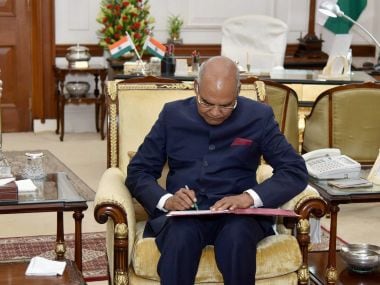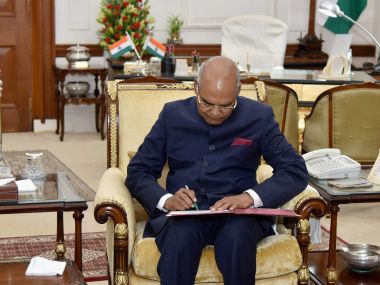A presidential form of government for India is singularly a very bad idea. If you go back into history and come to the debate that ultimately fructified into the formulation of the Indian Constitution before the partition plan was approved on the June 3, 1947, the constitution that was being considered was looking at strong states and a weak Centre. However, when the Partition was announced, the union power committee that met on June 6, 1947, swung in the other direction and said that India would need a strong Centre and equally robust states. Even at that point, the founding fathers did not contemplate a presidential form of government for India. The reason they didn’t think about a presidential form of government was primarily because India is far too heterogeneous. It has a great amount of diversity, with myriad languages, customs, cultures, the way people lead their lives. It is only a parliamentary system that can really blend all this into what is called the Indian mosaic. Over the past seven decades, the parliamentary system has stood us in good stead and India, notwithstanding that we are a democracy that has a million mutinies every day, has progressed. It has prospered and has persevered. [caption id=“attachment_5271611” align=“alignleft” width=“380”]  File image of President Ram Nath Kovind. PTI[/caption] In fact, every time there has been a debate about the presidential form of government, sane minds, cool heads, constitutional thinkers and luminaries have all ultimately come around to the view that the Westminster style of government, which leads to the formation of governments in the states and at the Centre through the will of the people who elect members of legislatures and Parliament, is perhaps the best suited system for India. The United States of America has a presidential form of government, but there also identity and race play a very important role in electoral choices. For example, the African-Americans and the Hispanics tend to lean more towards the Democratic Party because they think it to be more liberal and inclusive while the white Americans lean towards the Republican Party. So, under these circumstances, this is a specious argument that if we have a presidential form of government, we will be able to mitigate the influence of caste, community and religion on political as well as electoral processes. The US system allows the president to make own decisions, free from influence of the party and legislature. Errors in decision making in such a setup is much higher as against a more “spread out” parliamentary system. In modern democracies flow of information is vast and complex, and when decision-making is limited to a few people, chances of errors are high. The parliamentary system allows delegation of power, something that is not possible in a presidential system. Delegation of decision-making power and independent – legal and constitutional — authority are two very different things. Also, possibility of deadlocks, as we have seen in the US, is real if the rival party rules the legislature. Much of Latin America has presidents in lead role and these countries have done much worse when compared with parliamentary systems. These effects can be seen in political volatility, poor economy and inability of tackle widening inequality. In a diverse country like India, decision making has to be through consensus. In a parliamentary system, the prime minister and the council of ministers have to be members of the legislature and are answerable to it. They don’t work in isolation nor can they take decisions unilaterally. Excessive centralisation of powers, more than one Prime Minister has learned to their dismay, creates tensions which retard the functioning of government. The parliamentary system of decision-making is not only more democratic, India’s experience teaches us, but also more efficient. More autonomy for states is a Centre-state issue. Therefore, there is a strong case of relooking at some features of the Constitution, devolving more powers to the states. But that doesn’t mean that we have to throw out the baby with the bathwater. Just to correct this skew in the federal system, we essentially need not junk the Westminster style and switch to a presidential style of government. The argument that a presidential form of government reduces corruption is misplaced and is not relevant to the whole debate. The parliamentary system is equally equipped to be transparent and accountable. If there are aberrations in the system, there are other ways of looking at it. I think a presidential form of government, as opposed to a parliamentary form of government, is a governance paradigm that needs to be debated upon its own merits rather than allowing extraneous factors to impinge upon it. There is a certain fusion between the executive and the legislature in a parliamentary form of government but that’s not something unique to India. It is inherently a characteristic of the Westminster system of government. Manish Tewari is a senior Congress leader and former Union Minister for Information and Broadcasting
The argument that a presidential form of government reduces corruption is misplaced and is not relevant to the whole debate. The parliamentary system is equally equipped to be transparent and accountable.
Advertisement
End of Article


)
)
)
)
)
)
)
)
)



